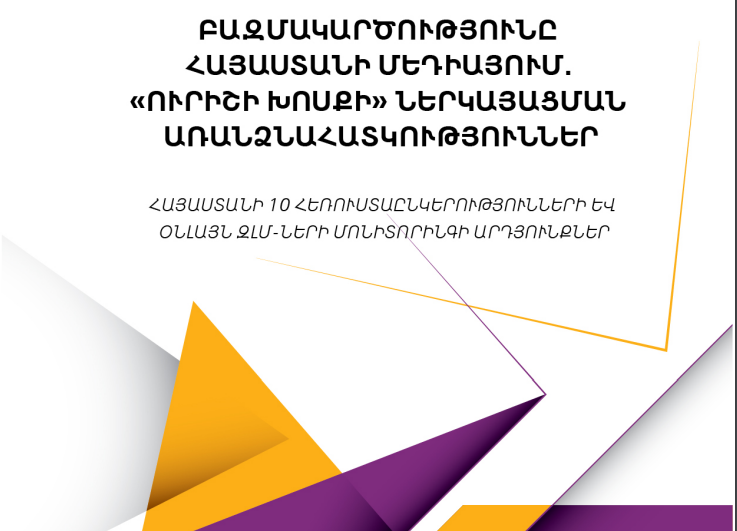
The latest study of the “Region” research center is on the topic of ensuring pluralism in ten Armenian media.
One of the forms of the manifestation of pluralism is the presence of “someone else’s speech” in the media content, whose speech is presented during coverage, how it is circulated in the media and how intensively it is done.
In order to get a certain picture, the materials of 5 TV companies of Armenia (Public JSC, Channel 5, Kentron JSC, Yerkir Media JSC, and Freenews JSC) and 5 online websites (1in.am, Freenews.am, Hraparak, Factor.am, and Civilnet.am) were studied for one month (10.04-10.05, 2022).
Two main criteria have been defined for the selection of the media outlets:
- Media that has different relations with the ruling and opposition political forces
- Media that, in addition to text materials, circulates a large volume of videos: programs, live reports, and news programs.
Which media “listens” to people the most?
According to the research, all media widely circulated the opinions and speech of “others,” in general there was no shortage of references to other people’s speech, and complete circulation of other people’s speech in the media.
1in.am – 33%, Factor.am – 17%, Civilnet.am – 15% accounted for the most studio interviews among the monitored media. Freenews.am and Hraparak.am are the online leaders in reproducing other people’s speeches.
During one month, the largest number of interviews with the invited figures and specialists was organized by the Public TV company through 6 different programs of the genre.
According to this indicator, the Yerkir Media TV company is in second place, Channel 5 is third, and the Kentron TV company is in last place.
According to the research, although the circulation of “someone else’s speech” in news reports is mainly determined by the events of the day, representatives of preferred political teams have significantly more of a voice than others. However, there are also media whose platforms did not have such obvious rifts.
Without exception, all 10 media outlets also circulated the words of ordinary citizens. However, on pro-government platforms, the words of citizens criticizing the opposition were quoted, and on the contrary, in the opposition media, the words of citizens labeling the authorities were quoted.
The same figure, expert, NGO representative, analyst, etc. were invited to the programs of different formats on a number of TV stations: Public TV, Freenews, and Yerkir Media, within a month.
For example, the researchers recorded 18 experts and analysts who were interviewed 3-6 times at the 1in.am studio within a month. There were fewer such examples at Factor.am.
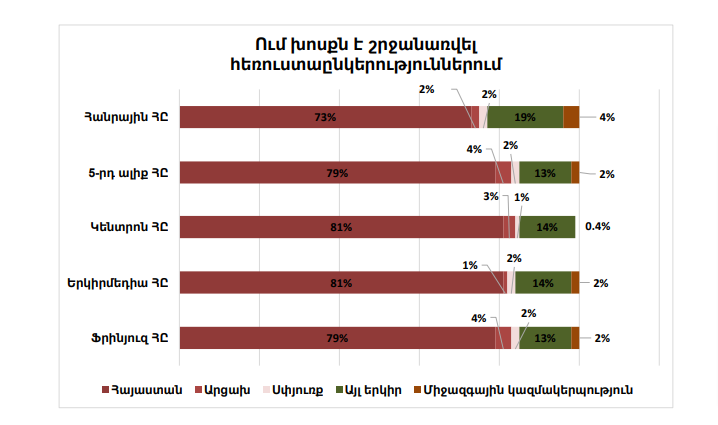
Another one of the characteristics is that the volumes of speech of representatives of other countries, Artsakh, and the Diaspora are significantly different in different media. For example, 1in.am published almost as many opinions of Diaspora representatives as Civilnet.am, which produces significantly less material during the day (5% and 4%, respectively).
Freenews.am (34%) and Factor.am (21%) circulated the statements of representatives of other countries more times than others.
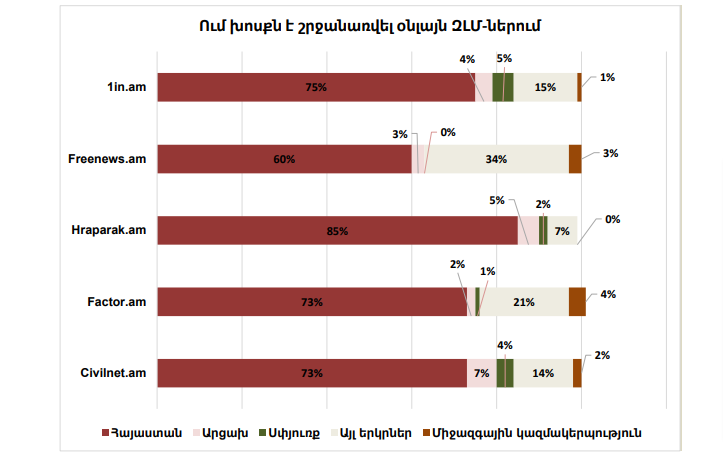
What are the thematic priorities?
In the research, special attention was also paid to the topics: Karabakh conflict, the Russian-Ukrainian war, street protests of the opposition, legal problems, etc.
And so, the interviews of 1in.am, Freenews.am, Factor.am, and Civilnet.am were more about the Karabakh conflict than the protests of the opposition.
On all online sites, the topic of the Russian-Ukrainian war was discussed less than the above-mentioned issues, and on Freenews.am as little as the topics of opposition protests.
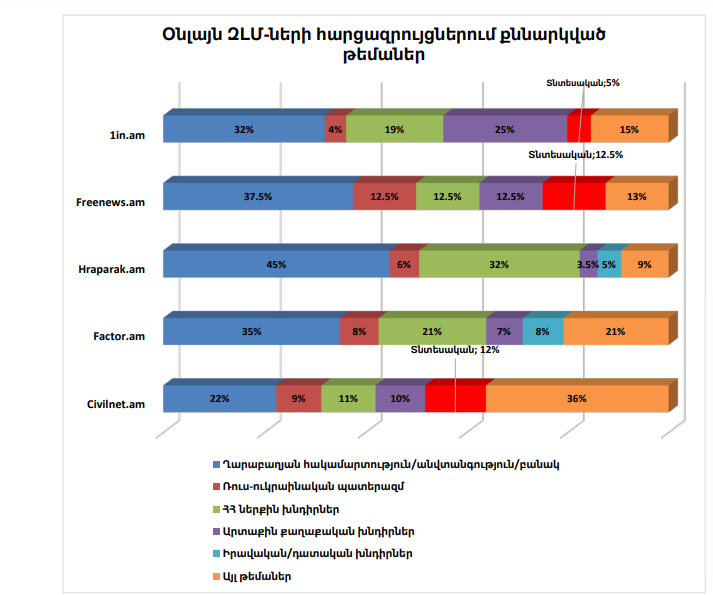
The representatives of Armenia also spoke excellently in the interviews about the significant events taking place in other countries. Officials and specialists from other countries rarely appear in Armenian media during interviews. Diaspora representatives are also invited to comment on the processes related to other countries. However, there are not many such cases.
Thus, out of 10 media outlets, only 1in.am organized interviews with representatives of other countries on matters of public importance.
The topic of the Russian-Ukrainian war was covered on all the TV channels mainly in reportage materials with statements made by different parties. Very few interviews were organized with the representatives of those countries on the subject of the Russian-Ukrainian war.
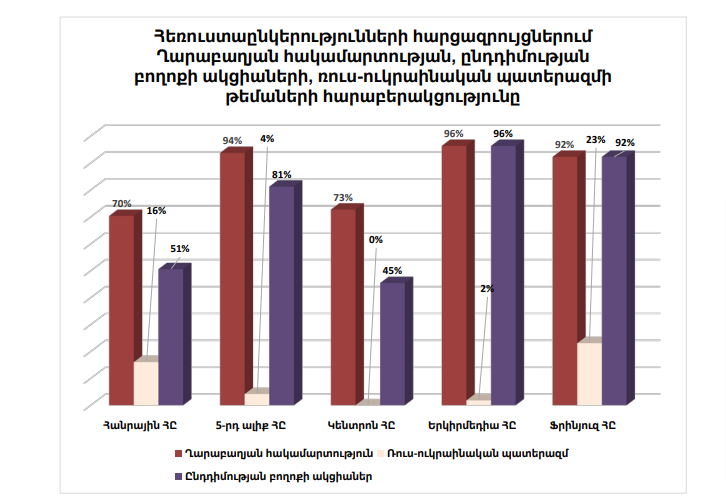
With this link about the research, you can see the graphs of how many quotes have been circulated according to the media.
Gayane Asryan

Add new comment
Comments by Media.am readers become public after moderation. We urge our readers not to leave anonymous comments. It’s always nice to know with whom one is speaking.
We do not publish comments that contain profanities, non-normative lexicon, personal attacks or threats. We do not publish comments that spread hate.